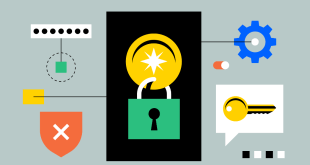In today’s digital age, online security is of paramount importance. We have all become familiar with SSL certificates and their role in securing our data while transmitting over the web. However, as technology evolves, so do the threats to our online privacy. With the advent of quantum computing, traditional SSL certificates face the risk of being rendered ineffective. In this comprehensive blog, we delve into the world of post-quantum HTTPS, exploring the cutting-edge cryptographic solutions that go beyond SSL certificates to ensure a safer online experience.
The Evolution of HTTPS
Before we plunge into the realm of post-quantum cryptography, let’s briefly understand the evolution of HTTPS and its role in securing our data. HTTPS, or Hypertext Transfer Protocol Secure, is the encrypted version of HTTP. It uses SSL/TLS certificates to create a secure connection between the user’s browser and the server hosting the website. This encryption ensures that sensitive data, such as login credentials and financial information, remains safe from eavesdroppers and potential attackers.
The Vulnerability of SSL Certificates
While SSL certificates have served us well for years, the emergence of quantum computers poses a significant threat to their security. Quantum computers have the potential to break traditional cryptographic algorithms, including the ones used by SSL certificates, rendering them vulnerable to attacks.
Post-Quantum Cryptography: A New Frontier
To address the challenges posed by quantum computing, researchers and cryptographers are exploring post-quantum cryptography (PQC). PQC involves developing encryption algorithms that can withstand the computing power of quantum machines. These algorithms aim to provide a new layer of security for HTTPS and other cryptographic applications.
Understanding Quantum Computers
To appreciate the need for post-quantum cryptography, let’s briefly delve into the workings of quantum computers. Unlike classical computers that use bits to represent information as 0s or 1s, quantum computers use quantum bits or qubits. Qubits can exist in multiple states simultaneously, thanks to the principles of superposition and entanglement. This unique property allows quantum computers to perform complex calculations at an exponential speed compared to classical computers.
The Impact on HTTPS
Quantum computers can break conventional cryptographic algorithms, such as RSA and ECC, which underpin SSL certificates. As quantum computing technology advances, the security of SSL-protected websites could be compromised. To safeguard the integrity and confidentiality of data transmitted over HTTPS, it is crucial to adopt post-quantum cryptographic solutions.
Post-Quantum Cryptographic Algorithms
A wide array of post-quantum cryptographic algorithms is being researched and tested. Some of the most promising ones include:
Lattice-based Cryptography
Lattice-based cryptography relies on the hardness of certain mathematical problems related to lattices. These problems are believed to be difficult even for quantum computers, making lattice-based schemes a potential choice for post-quantum security.
Hash-Based Cryptography
Hash-based cryptography uses hash functions to ensure data integrity and authenticity. While resistant to quantum attacks, hash-based schemes may have limitations concerning key sizes and signature lengths.
Code-Based Cryptography
Code-based cryptography relies on error-correcting codes for encryption. Decoding these codes without the appropriate information is computationally infeasible, making it a strong contender for post-quantum security.
Multivariate Polynomial Cryptography
This approach involves working with systems of multivariate polynomials and their solutions, which is believed to be resistant to quantum attacks.
Isogeny-Based Cryptography
Isogeny-based cryptography utilizes mathematical properties of elliptic curves, making it challenging for quantum computers to break.
Implementing Post-Quantum HTTPS
Transitioning from traditional SSL certificates to post-quantum HTTPS requires a thoughtful approach. Migrating to post-quantum cryptographic algorithms should be done gradually and seamlessly to ensure compatibility with existing systems and browsers.
The Role of Hybrid Cryptography
One approach to implementing post-quantum HTTPS is through hybrid cryptography. In hybrid systems, both traditional and post-quantum cryptographic algorithms work together. This strategy allows for a smooth transition while providing an extra layer of security against potential quantum attacks.
Common Challenges and Considerations
Transitioning to post-quantum HTTPS comes with its challenges, such as increased computational overhead and the need for standardized algorithms. Additionally, the industry must reach a consensus on which post-quantum cryptographic schemes to adopt.
The Road Ahead
The move towards post-quantum HTTPS is an ongoing journey. Researchers, businesses, and internet users must collaborate to develop and implement robust cryptographic solutions that can withstand the quantum threat.
Final Words
In the ever-evolving landscape of cybersecurity, the quest for secure and private online communication continues. Beyond SSL certificates lies the world of post-quantum HTTPS, where cutting-edge cryptographic algorithms promise to safeguard our data from the powerful computing capabilities of quantum machines. Embracing post-quantum cryptography is essential to fortify the security of HTTPS and ensure a safer digital future.
Frequently Asked Questions
Q1: Will current SSL certificates become obsolete with the rise of quantum computing?
A1: While quantum computing poses a threat to conventional SSL certificates, the transition to post-quantum cryptographic solutions will secure HTTPS against quantum attacks.
Q2: How long will it take for post-quantum HTTPS to become mainstream?
A2: The adoption of post-quantum cryptography depends on the advancement of quantum computing and the standardization of new cryptographic algorithms. It may take several years for widespread implementation.
Q3: Can hybrid cryptography guarantee protection against quantum attacks?
A3: Hybrid cryptography provides an additional layer of security by combining traditional and post-quantum algorithms. However, its effectiveness depends on the strength of the chosen post-quantum scheme.
Q4: Will post-quantum HTTPS impact website performance?
A4: Post-quantum cryptographic algorithms may introduce some computational overhead, but ongoing research aims to optimize their efficiency.
Q5: How can businesses prepare for the transition to post-quantum HTTPS?
A5: Businesses should stay informed about advancements in post-quantum cryptography, conduct risk assessments, and collaborate with experts to plan a seamless migration strategy.
 webfily
webfily



